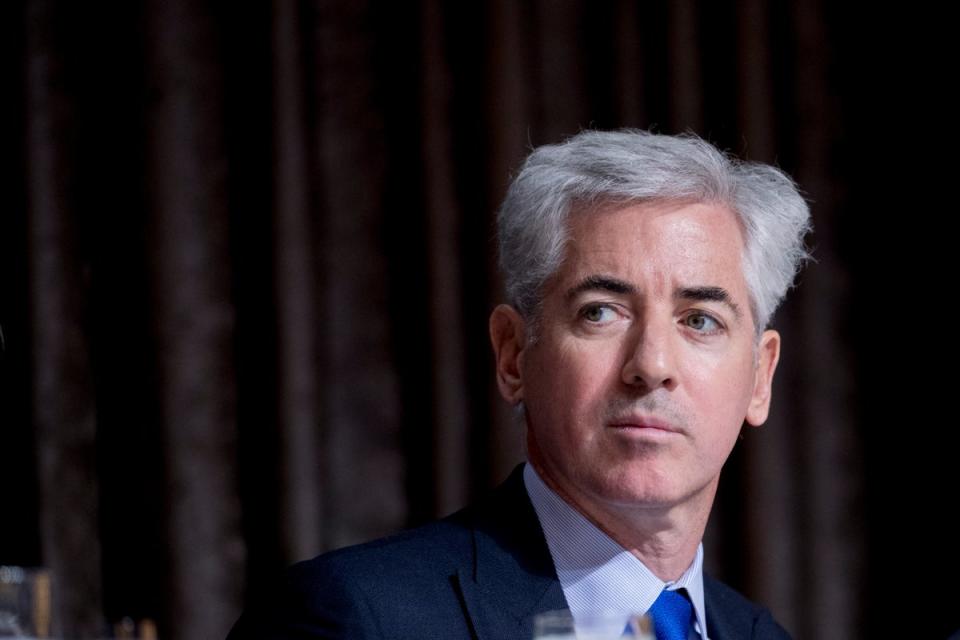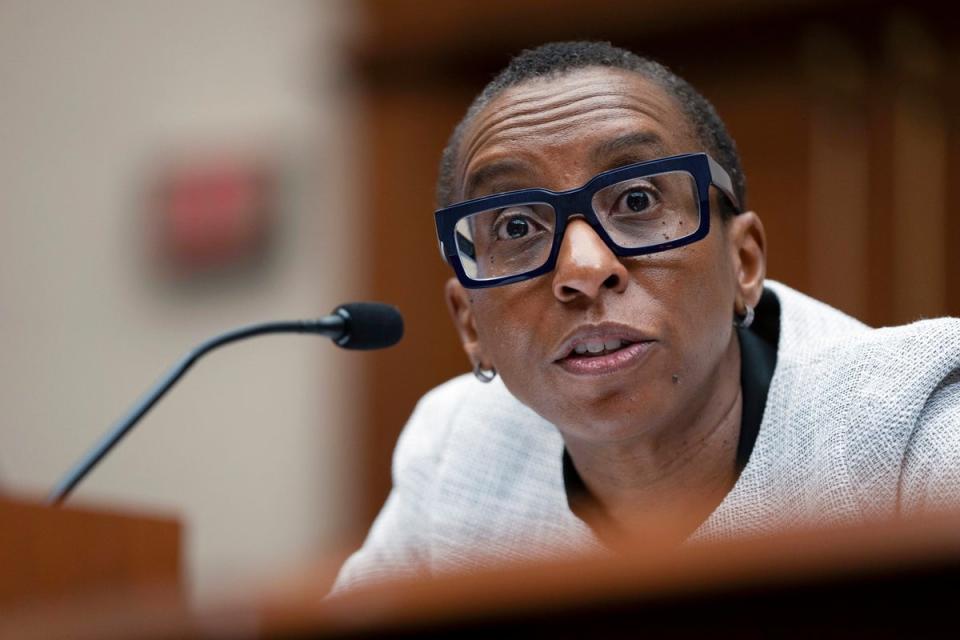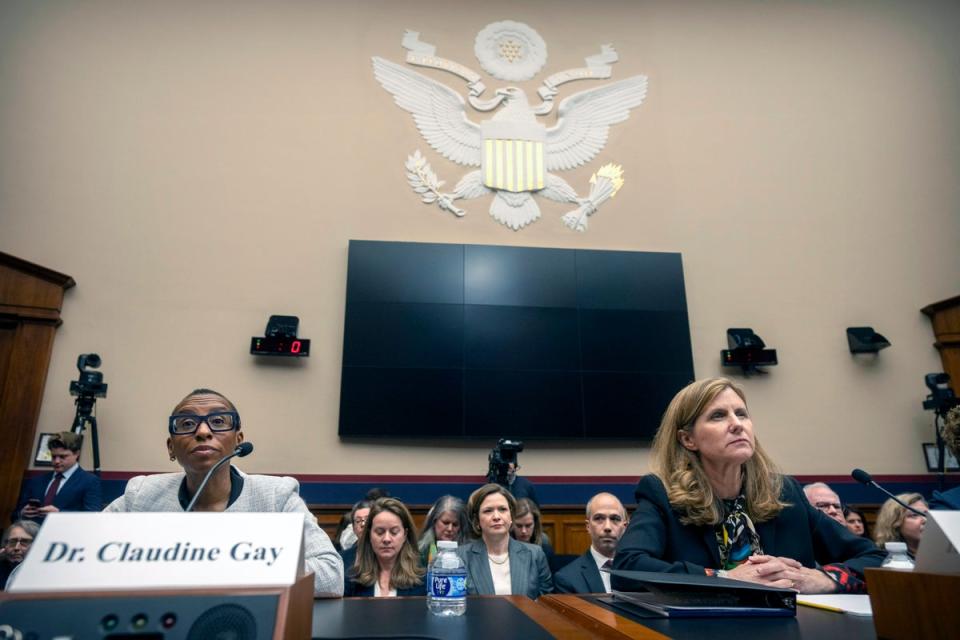Billionaire denies ‘resentment’ toward Harvard after failing to oust president
Harvard alum and billionaire hedge fund CEO Bill Ackman has denied he “resents” the university after he failed to oust its president from her position following a row over antisemitism on campus.
In a statement posted on X, Mr Ackman, 57, said he has a longstanding issue with Harvard over its selling $85m worth of stock he donated for $10m but denied that it has anything to do with his recent move to oust the university’s president, Claudine Gay, from her position.
The Pershing Square CEO made the claim in response to an article by The New York Times titled, “Bill Ackman’s Campaign Against Harvard Followed Years of Resentment,” which claims his “long-held personal grudges” against the school are partly behind his campaign to oust Harvard president Claudine Gay after her congressional testimony on campus anti-semitism.
Mr Ackman said the story was “false and misleading.”
“I have held no resentment toward Harvard ever. And I have none now,” he wrote. “The story gives the impression that my motivation for raising issues about antisemitism at Harvard and President Gay were due to prior grievances. This is entirely false and misleading.”
He then outlined his version of events, saying he donated the stock to Harvard to support the possibility of the university recruiting renowned economist Raj Chetty.
He added that at the time he was low on liquid cash while going through a divorce and his company Pershing Square “had gone through a large drawdown.”
“It was important to me that I could fulfill our long-term plan to recruit him despite my difficult personal circumstances at the time,” he wrote. “I knew Harvard could find the money from someone else, but I wanted to fulfill my original plans for the Foundation of Human Behavior initiative.

“It was important enough to me that I agreed to give Harvard stock in a private venture-backed company that I expected would be worth many multiples of that value in only a few years.
“My agreement with Harvard provided that if and when the company went public in a few years, if the stock was worth more than $15m, I would have the right to allocate the excess realized value above $15m to the Harvard-related initiative of my choosing. In the event the stock was worth less than $10m, I committed to make up the difference with an additional donation to the University,” he added.
But Mr Ackman claims that when he called Harvard in January 2021, after learning the stock was now worth $85m, he discovered that the university had sold the stock in March 2020 for $10m.
“I was not happy as you might expect,” he wrote. “To make matters worse, none of HMC, the administration, or even my development officer had the courtesy to apologize. I heard from no one by email, phone or otherwise.”
The billionaire added that then-Harvard president Larry Bacow eventually “apologized and promised to rectify the situation”, but never did despite Ackman’s “periodic reminders.”
Mr Ackman concluded by insisting that his “unfortunate experience as a donor to the University” is a “total sideshow to the serious concerns I have about Harvard’s leadership, and now, Harvard’s governance, in light of how the Board has handled the President Gay situation and the eruption of antisemitism on campus.”
“To be extremely clear, my advocacy on behalf of antisemitism, free speech on campus, and my concerns with DEI at Harvard have absolutely nothing to do with my unfortunate experience as a donor to the University,” he said.

“I can understand why perhaps Harvard would like to characterize my recent initiatives as due to resentment, but I have no resentment toward Harvard now, nor at any time.”
The New York Times’ article on Mr Ackman came hours after The Harvard Corporation announced Ms Gay would keep her job as president despite repeated calls for her resignation.
The university’s highest governing body released a statement on Tuesday throwing their unanimous support behind the college president, calling her the “right leader to help our community heal”.
Mr Ackman claimed this week that he had been told by “two reporters” that “one of the factors that made it challenging for the @Harvard board to fire Gay was that they were concerned it would look like they were kowtowing to me.”
The billionaire has been one of the most vocal critics demanding that Ms Gay, the university’s first Black president, “resign in disgrace” over her testimony before Congress last week in which she and the presidents of the University of Pennsylvania and the Massachusetts Institute of Technology failed to explicitly say that calling for the genocide of Jews would violate their colleges’ harassment and bullying codes.
Instead, they took the stance that it ”depends on the context” — something all three later apologised for, with UPenn president Liz Magill later resigning from her position.
“As a result of President Gay’s failure to enforce Harvard’s own rules, Jewish students, faculty and others are fearful for their own safety as even the physical abuse of students remains unpunished,” Mr Ackman wrote in an open letter to Harvard’s governing board on Sunday.
“Knowing what we know now, would Harvard consider Claudine Gay for the position? The answer is definitively ‘No.’ With this simple thought experiment, the board’s decision on President Gay could not be more straightforward,” he added.

Calls for My Gay’s resignation came almost immediately after the Hamas attacks on Israel, when a group of 33 Harvard student organisations, led by the Harvard Undergraduate Palestine Solidarity Committee, released a now-deleted statement on social media arguing that Israel’s “apartheid regime” had created the impetus for the war.
The letter, published on the same day as the 7 October attacks, prompted furious backlash, with Harvard professors and alumni calling on the university’s leadership to condemn the letter as well as Hamas.
Mr Ackman also called for the signers of the letter to be blacklisted from top Wall Street firms — a move he came under fire for after a truck appeared near the Harvard campus, circling the university and displaying photos of Harvard students and organisations allegedly linked to the original statement.
Ms Gay issued a statement three days after the letter was published condemning the 7 October attack and distancing the university’s leadership from the letter.

 Yahoo News
Yahoo News 
